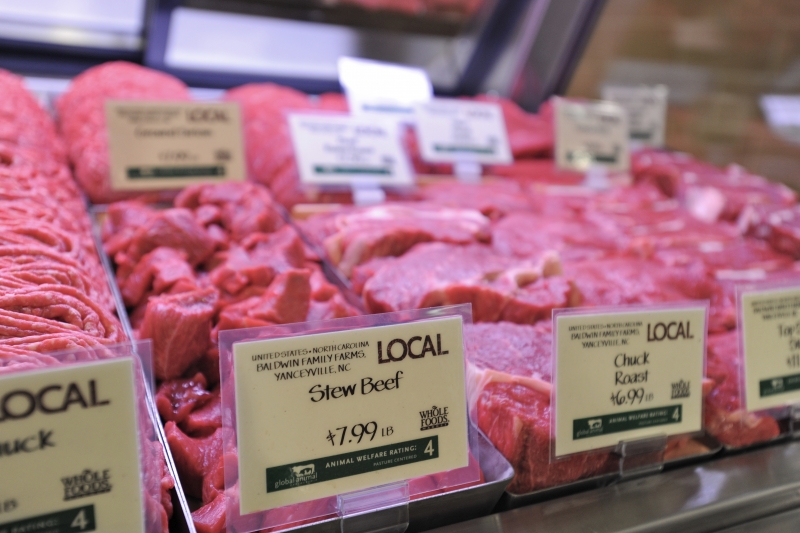Cooperation with speciesist industry is a primary tactic for professionalized organizations in the Nonhuman Animal rights movement, despite its dangerous consequences for normalizing a post-speciesist ideology. This strategy concerns me as it normalizes capitalism, despite capitalism’s inherent need to exploit social inequality.
“Father” of Nonhuman Animal rights and elite philosopher Peter Singer supports this pro-capitalist route, insisting that those with the privilege to do so should financially support the world’s poor, generally by funneling wealth through carefully selected, elite-operated charities. From this perspective, it is not necessarily the unequal system that is the problem, but rather the failure for more privileged parties to take care of those underneath them.
Altruism and corporate success are fundamentally incongruent. Consider Whole Foods CEO John Mackey’s 2009 editorial piece published in the Wall Street Journal warning of the perils of Obamacare (President Obama’s attempt to provide healthcare to the millions of Americans who were vulnerable and unprotected, myself included at the time). Mackey insists that each person is responsible for their own health, and placing this burden on corporations is inappropriate:
“Rather than increase government spending and control, we need to address the root causes of poor health. This begins with the realization that every American adult is responsible for his or her own health.”
Not surprisingly Mackey’s prescription for personal responsibility and better health entails consuming more whole foods (conveniently on offer in his stores).
While activists believe that elites are the gatekeepers to to a more altruistic society, the pressures of capitalism will ensure that their cooperation with industry will entail serious compromise. Like many grocery chains, Whole Foods amassed its wealth through the exploitation of Nonhuman Animals, prison laborers, and immigrants producing product and the lower classes pushing the product on shop floors. What Mackey fails to acknowledge is that social services such as Obamacare are funded in part by corporations because it is considered a means of redistributing the wealth extracted through these inequalities.
Mackey, like many wealthy elites, resent this government intervention, promoting instead a neo-paternalist charity system which would keep this redistribution process within in his control. In doing so, corporations are able to feed or starve particular programs or issues according to the economic and political interests of the corporation.Revising tax laws, he insists, will, “make it easier for individuals to make a voluntary, tax-deductible donation to help the millions of people who have no insurance…” The celebration of individualistic solutions to social problems created by capitalism redirects blame to the most vulnerable in our society and absconds corporations of their responsibility to redistribute the wealth accrued through the exploitation of the vulnerable.
Mackey advocates “capitalism with a conscience,” supposing that a system built on inequality need not be devoid of altruism or compassion for others. But this conscience is conditional on the protection of a system of haves, have nots, and “personal responsibility” for successfully navigating a fundamentally unequal society.
This is not a game that social justice movements ought to be playing. Capitalist corporations require exploitation and prioritize profit. This incompatibility with egalitarianism should be a warning to activists that corporations will hold very little genuine support for social justice. Indeed, when activists offer their movement’s seal of approval to these “conscientious capitalists” as the Nonhuman Animal rights movement frequently does, corporations such as Whole Foods will happily apply these commendations to their products. Undoubtedly, this will also justify dramatically increasing the profitability of their value-added products.

Readers can learn more about inequalities in vegan projects in my 2016 publication, A Rational Approach to Animal Rights. Receive research updates straight to your inbox by subscribing to my newsletter.

